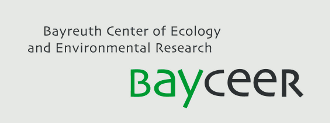Evaluation of multiple insect resistant Bt maize pollen consumption in honeybee workers under semi-field conditions
2 LAVES Institut für Bienenkunde, Celle
P 2.2 in Biodiversity and Nature Protection
Honeybees (Apis mellifera) are a key non-target species in ecological risk assessment of genetically modified (GM) insect resistant crops. Under laboratory conditions, possible adverse effects on bees are well studied. However, within functional colonies data about the exposition of individual worker bees to transgenic proteins are lacking so far. We conducted a semi-field experiment with a randomized plot design of four different maize varieties: multiple insect resistant Bt maize, isogenic line and two conventional maize varieties. Under semi-field conditions, we analysed rectum contents of worker bees to assess the ingested amount of pollen and the digestibility of the grains. In total, 816 workers out of 68 colonies were analysed. Pollen of the different varieties did not differ in the degree of digestion. Nevertheless, our data indicate differences between the ingested and the absorbed amount of Bt protein in honeybee workers. We conclude that colony level pollen analyses of honeybee rectums should be taken into account for ecological risk assessment of GM maize.


